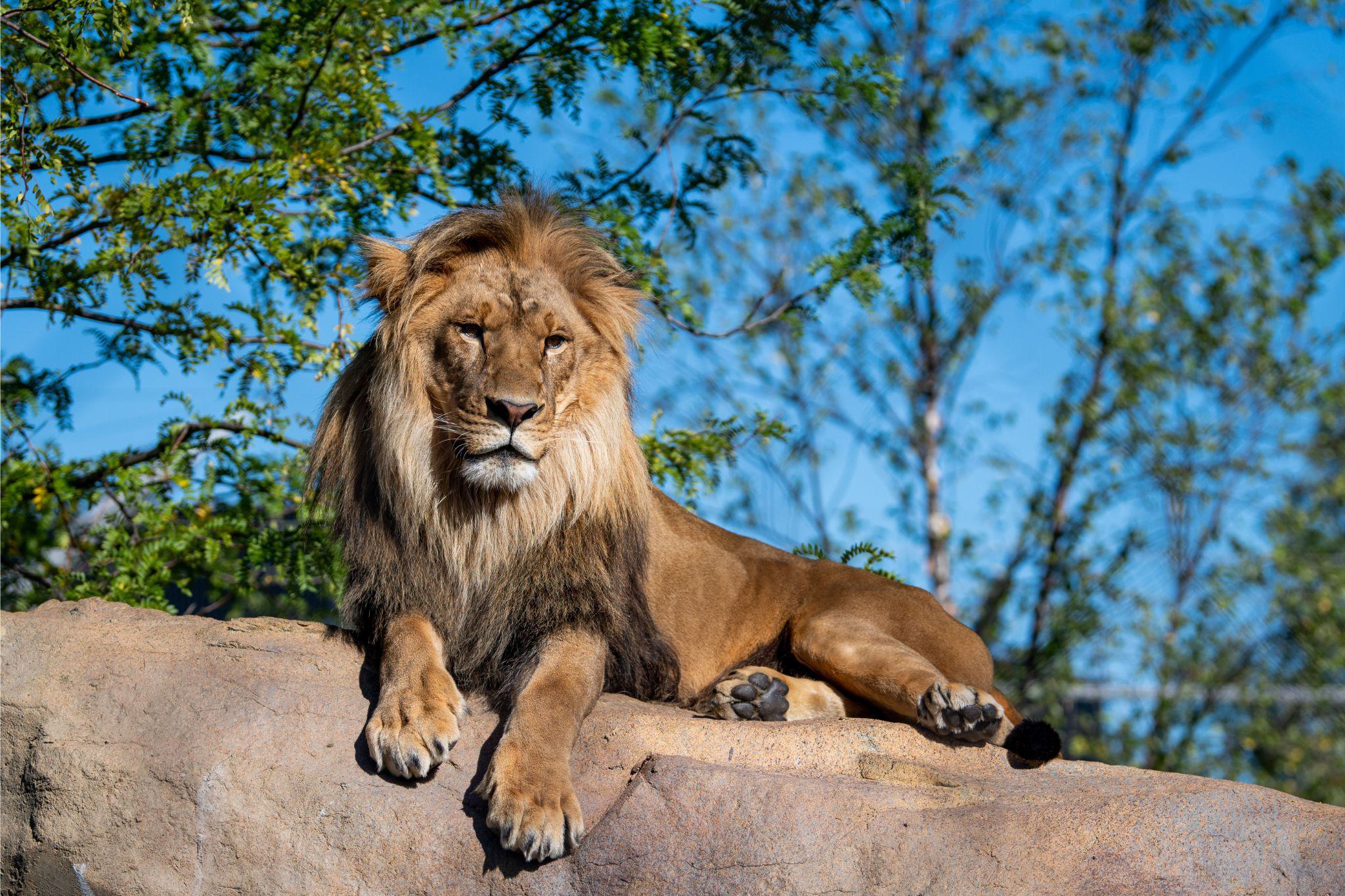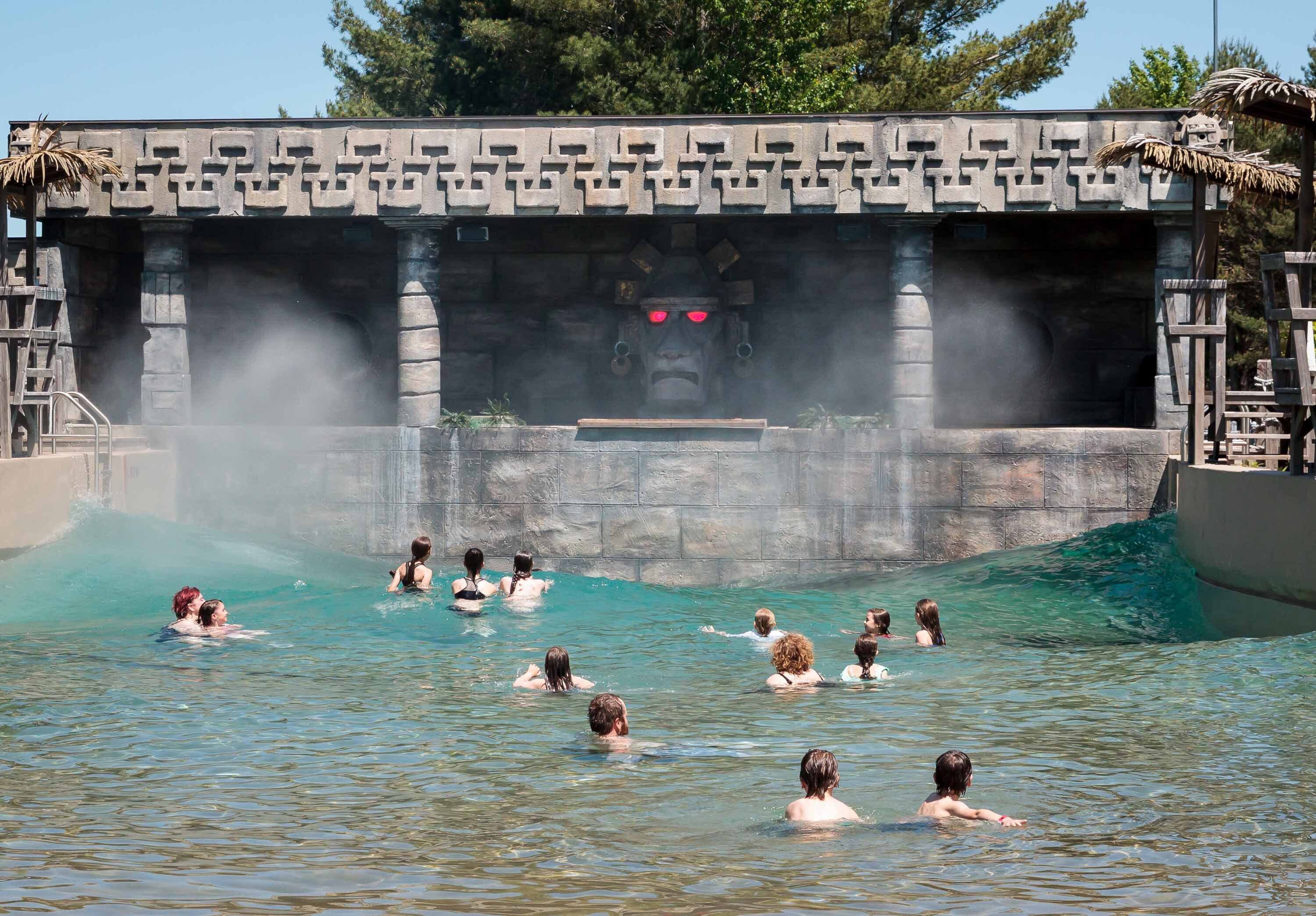TURTLES under high incubination
During the entire month of June, our conservation biologists’ offices were left completely vacant! But far from twiddling their thumbs, our team was out in the field, in turtle mode! With the return of warmer weather, the nesting season is getting under way for our native turtles, and our experts have their work cut out for them throughout this crucial period. Indeed, they’re doing everything they can for two reptile species found in Québec to provide their populations with a healthy boost and give them a chance to increase their hatchlings’ survival rate. In this article, we take you out into the field to help the spiny softshell turtle and the wood turtle.
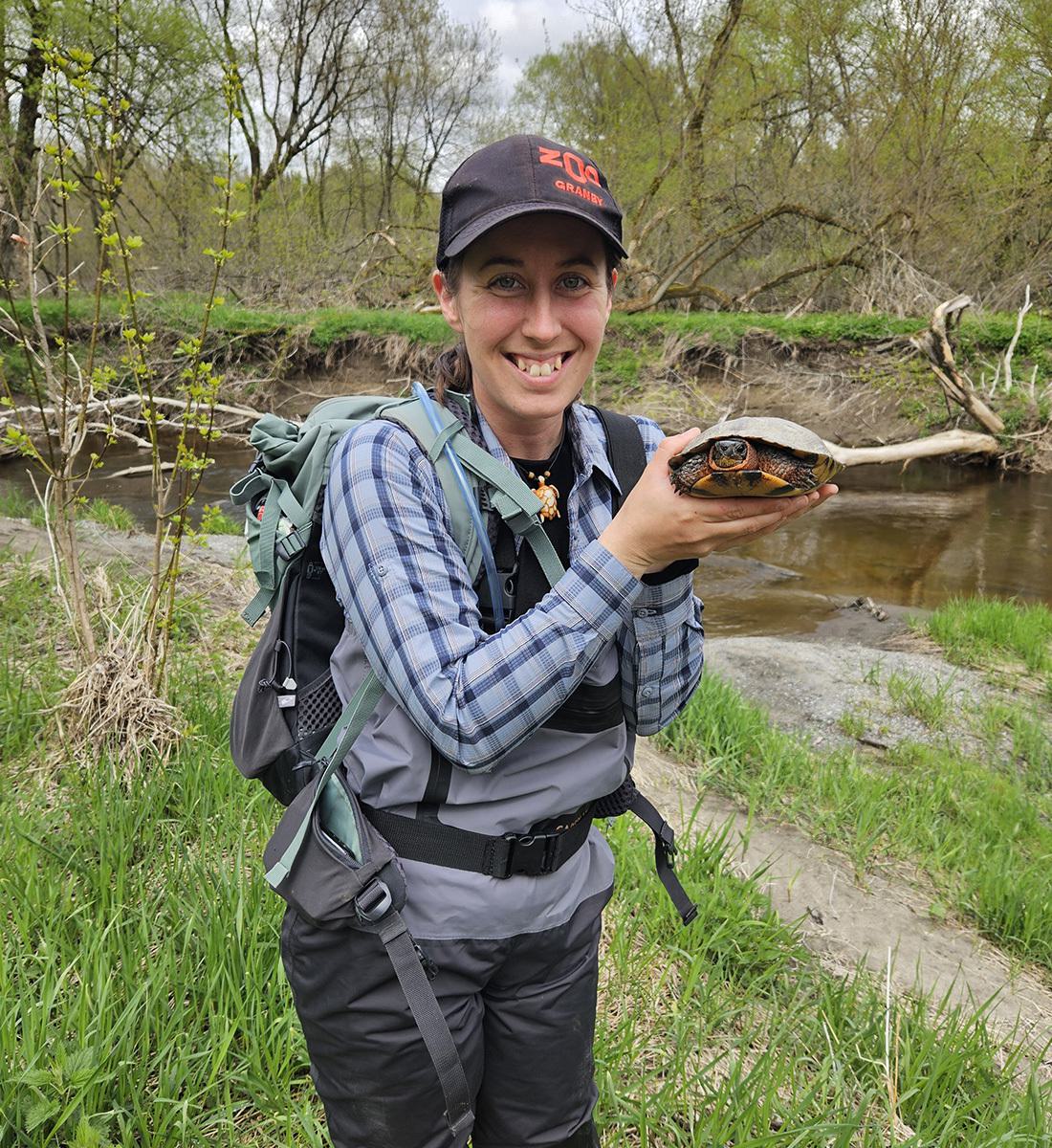
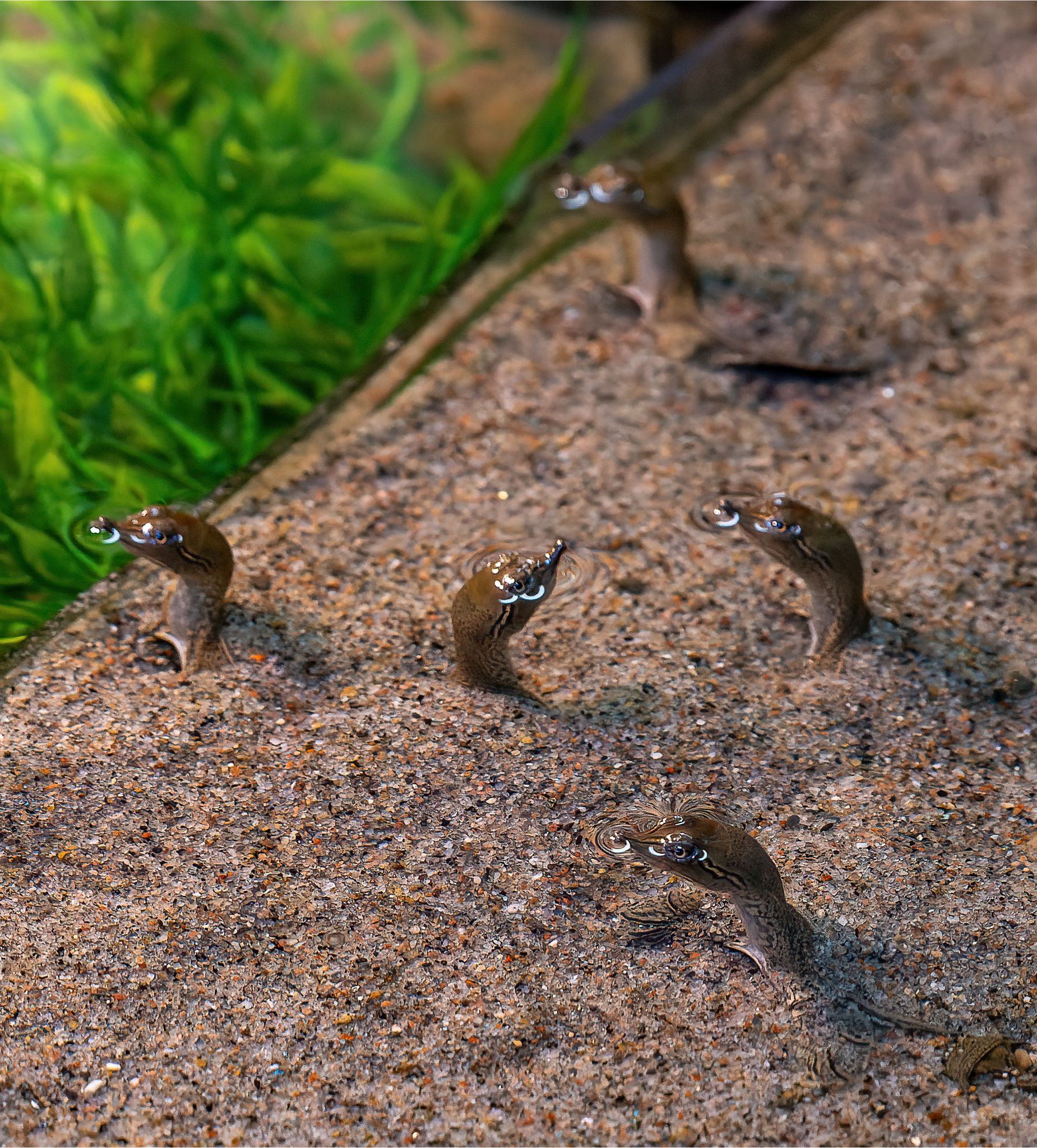
The Spiny Softshell Turtle: an Expertise that Has Been Patiently Growing for more than 15 Years!
Comfortably seated inside an observation post, a Zoo de Granby biologist, binoculars in hand, is scanning the Rivière aux Brochets (Pike River). It’s here that we find the only confirmed egg-laying site for spiny softshell turtles in Québec. Although the Zoo has been involved with this unique reptile species’ recovery team for more than 25 years, the institution began incubating eggs in its laboratory in 2009.
The aim is simple: to collect and place about ten nests in incubators each year, protected from Mother Nature’s unpredictability, and predators as well.
Climate change is leading to increasingly extreme weather conditions, particularly with flash floods that destroy the turtles’ nesting sites. Striped skunks, raccoons and other urban wildlife mammals are more widespread as well, and prey on their eggs. To date, our teams have released more than 2,300 small turtles back into the wild, after starting their lives in the safety of the zoo’s LabNature.
Beyond giving the little turtles a good start, the Zoo’s conservation biologists, along with their Nature Conservancy of Canada colleagues, are taking advantage of the warm weather to carry out door to door visits with landowners along the Rivière aux Brochets to raise awareness about the spiny softshell turtle; a very concrete means for getting them involved in preserving this special local species.
Since the Zoo de Granby’s stewardship activities began in 2014, these initiatives have made it possible to engage a dozen riverside residents (both within the farming community and private citizens) in the protection of the spiny softshell turtle.
The process of protecting a species is never limited to the animal alone, but also includes its habitat and environment, which in turn benefits other living species as well.
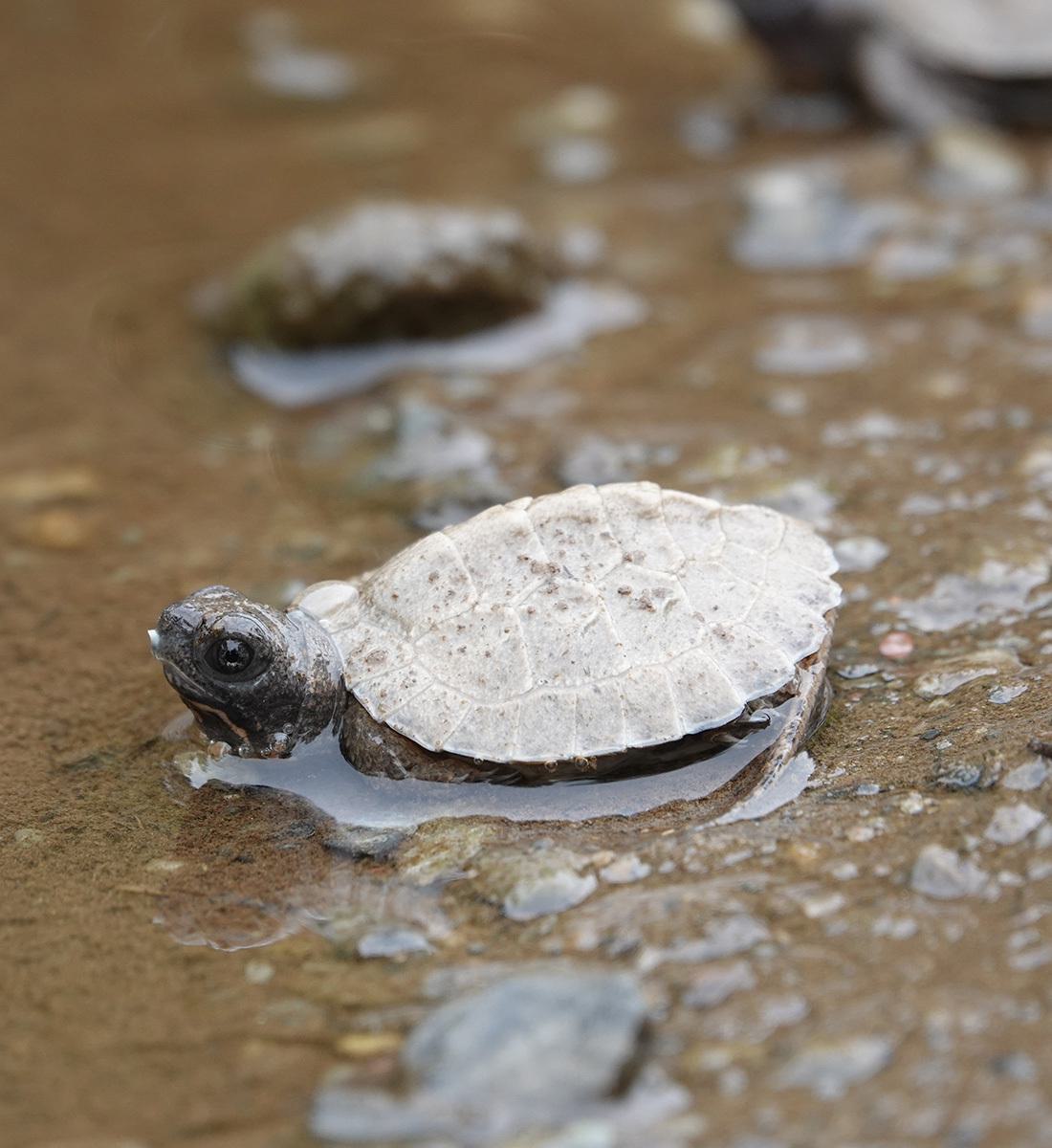
Wood Turtles: Putting a Well-Established Expertise to Good Use!
Since 2017, the Zoo de Granby’s team of biologists has also been working to preserve wood turtles, a species classified as vulnerable in Québec.
In 2023, building on its expertise relating to spiny softshell turtles, it successfully incubated 9 wood turtle eggs in its laboratory.
In 2024, 5 nests are being sheltered in this way.
In fact, to continue its initiatives in the field, last March, the Zoo de Granby was very proud to announce that it had received one of the largest conservation grants in its history, nearly $175,000, from the Fondation de la faune du Québec’s (FFQ) “Faune en danger, volet grands projets” program.
This project is directly in line with the objectives set out in our Mission Faune initiative, launched earlier this year, in May, which aims to increase the Zoo’s impact on the conservation of our biodiversity.
Thanks to the financial contribution of a dozen partners, including Environment and Climate Change Canada (ECCC), the UPA de la Montérégie, the Fondation SETHY, OBV Yamaska and the Fondation du Zoo de Granby, a total of more than a quarter of a million dollars will be dedicated over the next four years to the survival of this threatened native species.
This four-year funding will allow us to implement longer-term initiatives, develop closer collaborative relationships with the groups our activities are targeting, and enable us to measure the impact of these actions in the field.
Far from moving forward at a turtle’s pace, our biologists are proud to be contributing with these concerted efforts to protect animal species and their environment. By having everyone work together, we can make a difference for future generations!

